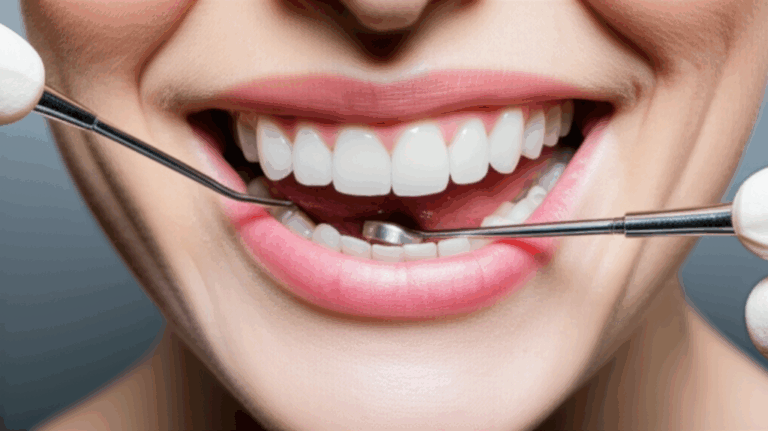Why Do Dentists Seem Mean? Understanding Perceptions & Finding Empathetic Care
Table of Contents
- Dental Anxiety and Dentist Phobia
- When Communication Breaks Down
- Perceived Judgment and Shaming
- Physical Discomfort and Pain
- Financial Stress at the Dentist
- Time Pressure and Tight Schedules
- Managing Patient Anxiety
- Detachment, Empathy, and “Bedside” Manner
- The Toll of Stress and Burnout
- The Complexity of Explaining Dental Work
- Why They Focus on Treatment Outcomes
- What Patients Can Do
- What Dental Practices Should Improve
Introduction: Facing the “Mean Dentist” Reputation
As a patient, I’ve often asked myself something that probably sounds familiar: Why do dentists seem so mean? That worried feeling in my stomach before a trip to the dentist, the fear of being judged, and worrying about pain always made me want to skip my appointments. If you’ve ever left the dentist’s office feeling like nobody listened to you, you were pushed out too fast, or just plain upset, believe me—you’re not alone.
After years of dental appointments—some good, some bad—I realized that this “mean” reputation isn’t always about dentists being bad people. Sometimes, it’s just about misunderstandings, stress, and what makes a dental office a different place to be. I want to share what I’ve learned—both from sitting in the chair and talking with dental workers—about why dentists can seem tough, and how you can find care that’s gentle and kind.
The Patient’s Side: Why Dental Visits Sometimes Feel Unpleasant
Let’s talk about how I, and many other people, feel as patients. There are lots of things that can make a trip to the dentist feel bad, and it’s not always about the dentist’s real attitude.
Dental Anxiety and Dentist Phobia
Before I even walk in the door, my nerves start acting up. Dental anxiety, or even full dentist phobia, is really common. Studies say dental anxiety affects up to 36% of people, and about 12% are so scared they just don’t go at all.
For me, it started with a rough time as a kid—a filling that seemed to take forever, and the numbing shot didn’t really work. One bad visit can stick in your memory, and every future appointment brings back the same scared feeling. When I’m already tense and expecting it to hurt, even a soft touch feels sharp, and a quick word from the dentist sounds rough.
Feeling Vulnerable
There’s that awkward feeling, too—lying back, mouth wide open, with tools poking around. You feel helpless, and when you’re stuck like that, even a simple comment from the dentist or assistant can hurt your feelings.
When Communication Breaks Down
A lot of my problems at the dentist have just been about talking and listening.
Sometimes my dentist jumped right into things without telling me what was going to happen or why. Being left out of what was happening to my own body never felt good. I’ve told someone it hurt, and they just kept going. Maybe they were just in a hurry, but it sounded to me like they meant, “Your pain isn’t important.”
The way they say things and even their face movements matter too. A quick “You’re fine!” from behind a mask or a hard stare can really make you feel like you’re a problem instead of a person.
Perceived Judgment and Shaming
One of the hardest things was feeling like I was being judged for how I take care of my teeth. If the dentist or assistant lets out a big sigh at my flossing, or tells me I should do better, it feels personal—even if they didn’t mean it that way.
Once, a dental assistant rolled her eyes and said, “We really should see you here more.” I left mad and embarrassed. When someone talks about my diet, brushing, or how much plaque I “let build up,” it can sound rude, even if it’s supposed to help.
Physical Discomfort and Pain
No doubt, dental visits can hurt. The noise of the drill, a shot in the gums, your mouth aching from being open—none of it feels good. If the numbing wears off too quick—or doesn’t work—it’s hard not to think the person hurting you is doing it on purpose.
I remember one cleaning left my mouth sore and bleeding for days. Did the hygienist mean to be rough? Probably not, but it sure felt like she didn’t care.
Financial Stress at the Dentist
Money makes everything harder. I’ve gotten surprise bills after appointments, sometimes for things I didn’t really get explained to me. You wonder if you’re being sold extra things you don’t need.
Sometimes, the person at the desk didn’t talk about my insurance well, or I felt like I had to decide about expensive stuff right away. If you’re worried about money, even a normal talk about paying can feel more like someone just wants your cash.
The Dentist’s Reality: Challenges Behind the Chair
Everything above is real for the patient. But after talking with some dentists and reading things from people like Dr. Joe Dental, I learned it’s tough for them too.
Time Pressure and Tight Schedules
Most dentists seem to have people waiting all day. They book appointment after appointment, and if one thing goes wrong, everything gets messed up. I used to feel hurt when a dentist seemed in a hurry, but I realized they’re just fighting against the clock.
When I asked one dentist about this, they said, “It’s hard. You want to give every person enough time, but if you run late, the whole day is off.” That’s why even kind dentists sometimes move too fast through what you want to say.
Managing Patient Anxiety
Dentists see nervous people all day. Dealing with scared, worried, or even panicked patients over and over can leave you feeling worn out. Some told me they kind of turn off their feelings as a way to protect themselves.
It’s not easy to know how a patient’s feeling when they’re numb, sedated, or can’t talk with tools in their mouth. Dentists might miss the clues that someone is tense or upset.
Detachment, Empathy, and “Bedside” Manner
Dental work needs a lot of focus and a steady hand. One dentist told me, “Sometimes I’m so busy with your teeth, I forget to talk to you like a normal person.”
Trying to stay professional is supposed to help them not get too personal or emotional. But for us, this can feel cold, uncaring, or even rude.
The Toll of Stress and Burnout
Dentistry is a hard job—both on the body and mind. Dentists work long hours, hunched over in hard positions. They also deal with emergencies, grumpy people, and tough insurance rules. Burnout is everywhere in the field.
Sometimes, stress from outside shows at work. I’ve seen a dentist look tired or lost in thought—they probably have their own problems. It’s not an excuse, but it is a reason.
The Complexity of Explaining Dental Work
Dental school teaches dentists lots of fancy words. What’s obvious to them can sound like another language to us. I’ve noticed when dentists try to make things simple, it risks sounding like they’re talking down. Or, too much detail and I get lost.
It’s hard to get this just right—and not every dentist can.
Why They Focus on Treatment Outcomes
In the end, most dentists want your teeth and gums to stay healthy. That means sometimes they’ll push for stuff that’s not fun now so you don’t have bigger problems later.
But for us, it’s easy to forget this when we’re the ones in pain or worry.
Bridging the Gap: Steps for Happier Dental Visits
If you’re tired of worrying before every dental trip, there are things you can do—I’ve tried myself—that actually help, both for me and for the dentist.
What Patients Can Do
Open Up and Communicate
I learned to just tell the truth. When I told my dentist about my fears, my worries about shots, and bad memories, they tried different ways. If something hurts—even just a little—say it right away.
Ask Questions
Don’t be scared to ask what’s happening, why you need it, and how much it’ll cost. If something isn’t clear, ask again. It’s your mouth and your money. Most dentists will like that you care.
Choose Wisely
Find a dentist the right way. Check for good reviews about empathy, being gentle, and clear explanations. Look for words like “kind,” “caring,” or “great with scared patients.” Ask your friends and family who they like.
A first visit or just a chat can help you learn their style before any big work.
Use Coping Mechanisms
If you’re very anxious, ask about sedation, calming tricks, or bringing a friend. I like to listen to music with headphones or just breathe slow and deep to stay calm.
Advocate for Yourself
If something really feels wrong—from painful cleanings to rude words—speak up. Sometimes, getting another opinion or switching clinics made all the difference for me.
What Dental Practices Should Improve
The best dental offices don’t just care about skill—they care how you feel, too. Here’s what they do right:
- Train Staff: Everyone, from the front desk to assistants, treats patients kindly.
- Talk Clearly: Dentists and staff take time to explain what’s going on, what it will cost, and what could go wrong or right—all in normal words.
- Patient-Centered: They listen, let you ask questions, and try to make things fit your needs.
- Modern Technology: Offices using new sedation, pain-free needles, and gentle tools get great reviews—especially from people like me who hate pain.
- Better Schedules: The good ones don’t overbook and make sure they have enough time for every person.
Some china dental lab companies use advanced materials or tools, making treatments quicker and less uncomfortable, which is great if you want the best experience.
Finding a Gentle, Empathetic Dentist
So, how do you find a dentist who doesn’t make you want to run away? Here’s what I look for now—after years of searching and messing up a few times:
What to Look For
- Actually listens: Will hear your concerns, not just rush you.
- Explains clearly: Tells you what’s happening in normal language.
- Good reviews: Look for people talking about “gentle,” “kind,” or “good with scared patients.”
- Nice office: Friendly staff and not rushed appointments.
- Is patient and gentle: Really matters if you’ve had bad experiences before.
You can sometimes spot these hints on their website, in how they describe their goals or what matters to them. Dental practices that use digital dental lab tech often care more about making people comfortable, too.
Steps to Take
Conclusion: Your Role in a Better Dental Experience
After looking back, I know the idea of “mean dentists” mostly comes from a mix of being scared, not talking enough, dentist stress, and how dental work feels by nature. Most dentists really do want to help—they aren’t out to get you. But not all offices are just as good at being both skilled and kind.
What I learned: your time at the dentist can get way better if you stand up for yourself, look for places that care, and stay active in your own care. Don’t accept treatment that makes you feel bad or scared. Your comfort matters—and with just a little effort, you can find people who care.
You deserve a healthy smile—and a visit to the dentist that doesn’t make you nervous. If you speak up, do some homework, and know what you want, you can make dentist trips something that helps you feel good, not something you avoid.
So next time you wonder, “Why are dentists so mean?” remember—it’s almost never personal. And best of all, you can find a dentist that’s just right for you.








